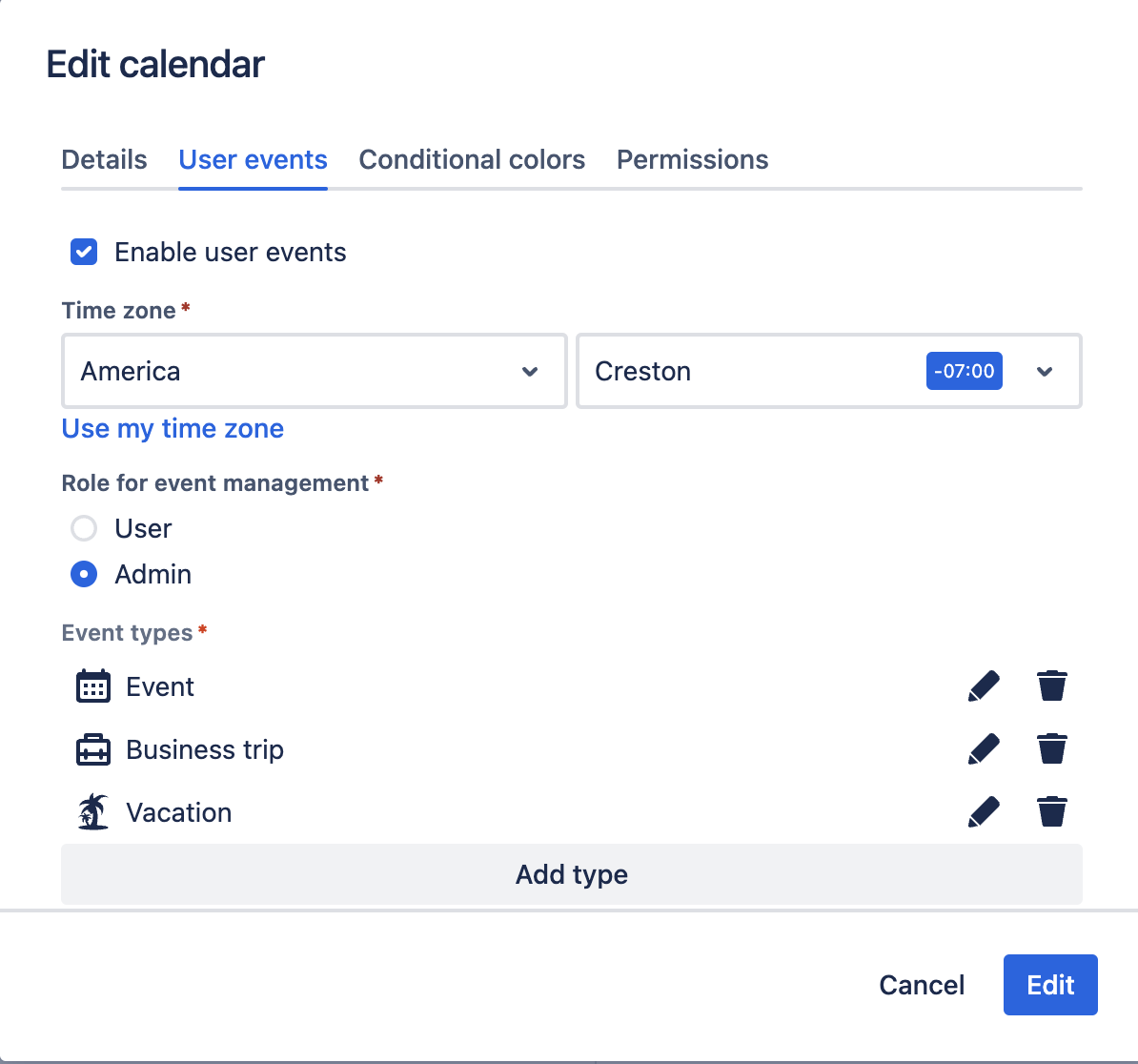Time zone configuration for calendar
The Problem
In teams distributed across different time zones, some observing Daylight Saving Time (DST*) and others not, we discovered an issue with the date/time calculation of recurring events.
Previously, event times were calculated based on each user's local time zone, which, due to the diverse DST rules and time differences across time zones, resulted in discrepancies. This could lead to issues in planning of recurring events.
Example
Team A operates in a DST-observing time zone, such as Eastern Daylight Time (EDT*, UTC-4), while Team B is in a non-DST zone like Arizona (MST, UTC-7 year-round).
When Daylight Saving Time commences, clocks in EDT advance, but MST* remains unchanged. Consequently, an event scheduled at 9:00 AM EDT before the DST shift effectively moves two hours earlier for MST participants after the shift, rather than one, leading to scheduling discrepancies.
The Solution
To address this issue, we have implemented an option that requires users to specify the time zone for each calendar. This change enables reliable calculation of dates and times for recurring events, taking into account the various rules of local time zones, such as Daylight Saving Time changes.

Calendar Time Zone Setting
Calendar Time Zone Setting. Users are prompted to select a time zone upon creating a calendar.
Calendar for Jira calculates the event's start and end times according to the calendar's time zone setting, including applicable DST rules. It then converts these times into the local time zone of each end user. This ensures an accurate reflection of event times for each participant in their local time zone, including those unaffected by DST.
Example with Solution
For an event scheduled at 9:00 AM EDT, the system calculates the time based on the calendar's configured time zone, EDT, and automatically adjusts for MST. Despite the DST alteration in EDT, MST participants will observe the correct event time in their calendars.
This solution guarantees that all participants view precise event times, facilitating seamless coordination in globally distributed teams and addressing the scheduling challenge head-on.
DST is the practice of moving clocks forward in spring for extra evening daylight.
EDT is Eastern summer time, 4 hours behind UTC, with DST.
MST is Mountain time, 7 hours behind UTC, often without DST.
